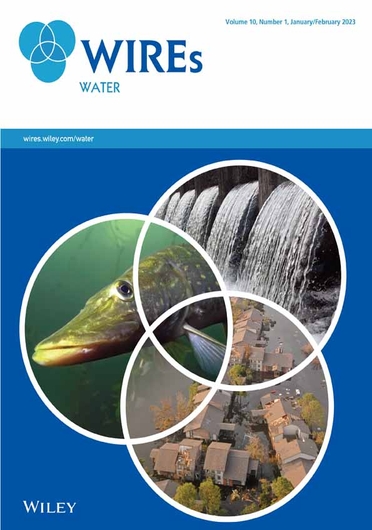国家所有权和私人准财产权之间的紧张关系
IF 5.8
1区 地球科学
Q1 ENVIRONMENTAL SCIENCES
引用次数: 2
摘要
水治理中的一个关键法律问题是谁拥有和持有水的产权。因此,我们要解决的问题是:世界范围内关于水的私有财产权的法律知识状况是如何演变的,这些权利是如何嵌入到当前现有的法律结构中的?为了回答这个问题,本文回顾了法律文献:(i)了解主要法律体系中水所有权和水产权的现状,(ii)了解和捕捉私人水“财产”权利如何嵌入现有法律结构;(三)反思这些权利在实践中的运用。我们的结论是:(a)虽然大多数国家已经将水置于公共领域,但过去的水权法定制度很难废除,而且越来越多的土著人民成功地要求承认和收回他们的水权。(b)各国通过法定机制(重新)分配水权,包括明确界定的一揽子权利。(c)虽然国家表面上控制着水资源,但通过历史和新的法定文书分配水资源“侵犯”了国家水资源所有权,并造成了混乱,影响了国家适应性地管理水资源的权力。这种混淆反映了国家为了公共利益而拥有和管理水资源的需求,原住民对水资源的权利,以及农业和工业对可靠水供应的需求之间的紧张关系,导致水资源使用权意味着对水的“准财产”权利。本文章由计算机程序翻译,如有差异,请以英文原文为准。
The tension between state ownership and private quasi‐property rights in water
A critical legal issue in water governance is who owns and who holds property rights in water. Hence, we address the question: How has the state of legal knowledge on private property rights in water evolved worldwide, and how are these rights embedded in the current existing legal constructions? In answering the question, this article reviews the legal literature to: (i) understand the current state of water ownership and water property rights in the main legal systems, (ii) understand and capture how private water “property” rights are embedded in the existing legal constructions; and (iii) reflect on the application of these rights in practice. We conclude: (a) While most states have placed water in the public domain, past statutory systems of water rights are difficult to abolish, and increasingly Indigenous peoples are successfully demanding recognition of, and reclaiming their water rights. (b) States are (re)allocating water rights through statutory mechanisms, including clearly defined bundle‐of‐rights. And (c), while the state ostensibly controls the water, the allocation of water through historic and new statutory instruments “encroaches” on state water ownership, and has created confusion affecting the state's power to adaptively govern the water. This confusion reflects the tension between the need of states to own and govern water in the public interest, the rights of Indigenous peoples to their water, with the need of agriculture and industries to have reliable supplies of water, leading to water use rights that imply “quasi‐property” rights in water.
求助全文
通过发布文献求助,成功后即可免费获取论文全文。
去求助
来源期刊

Wiley Interdisciplinary Reviews: Water
Environmental Science-Ecology
CiteScore
16.60
自引率
3.70%
发文量
56
期刊介绍:
The WIREs series is truly unique, blending the best aspects of encyclopedic reference works and review journals into a dynamic online format. These remarkable resources foster a research culture that transcends disciplinary boundaries, all while upholding the utmost scientific and presentation excellence. However, they go beyond traditional publications and are, in essence, ever-evolving databases of the latest cutting-edge reviews.
 求助内容:
求助内容: 应助结果提醒方式:
应助结果提醒方式:


